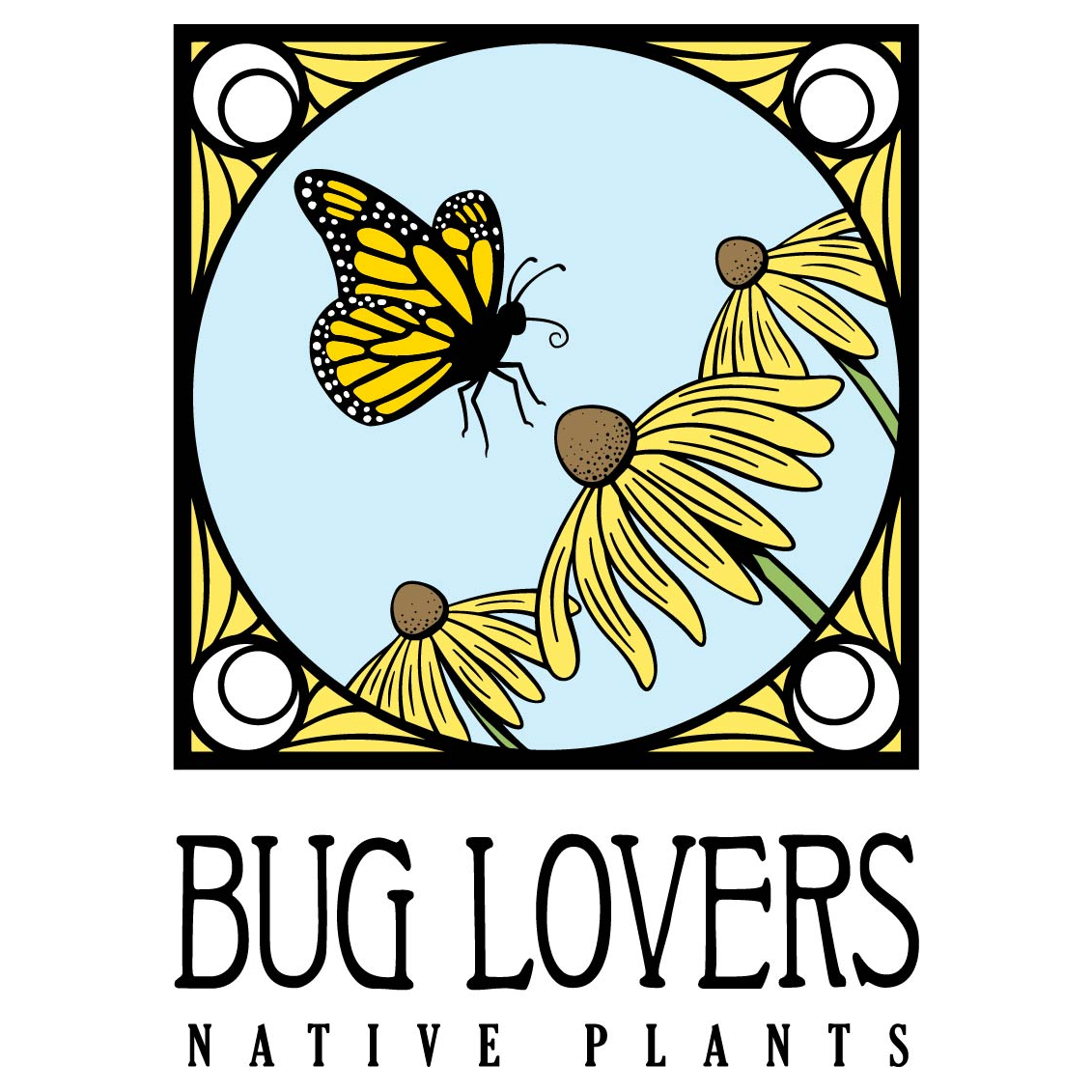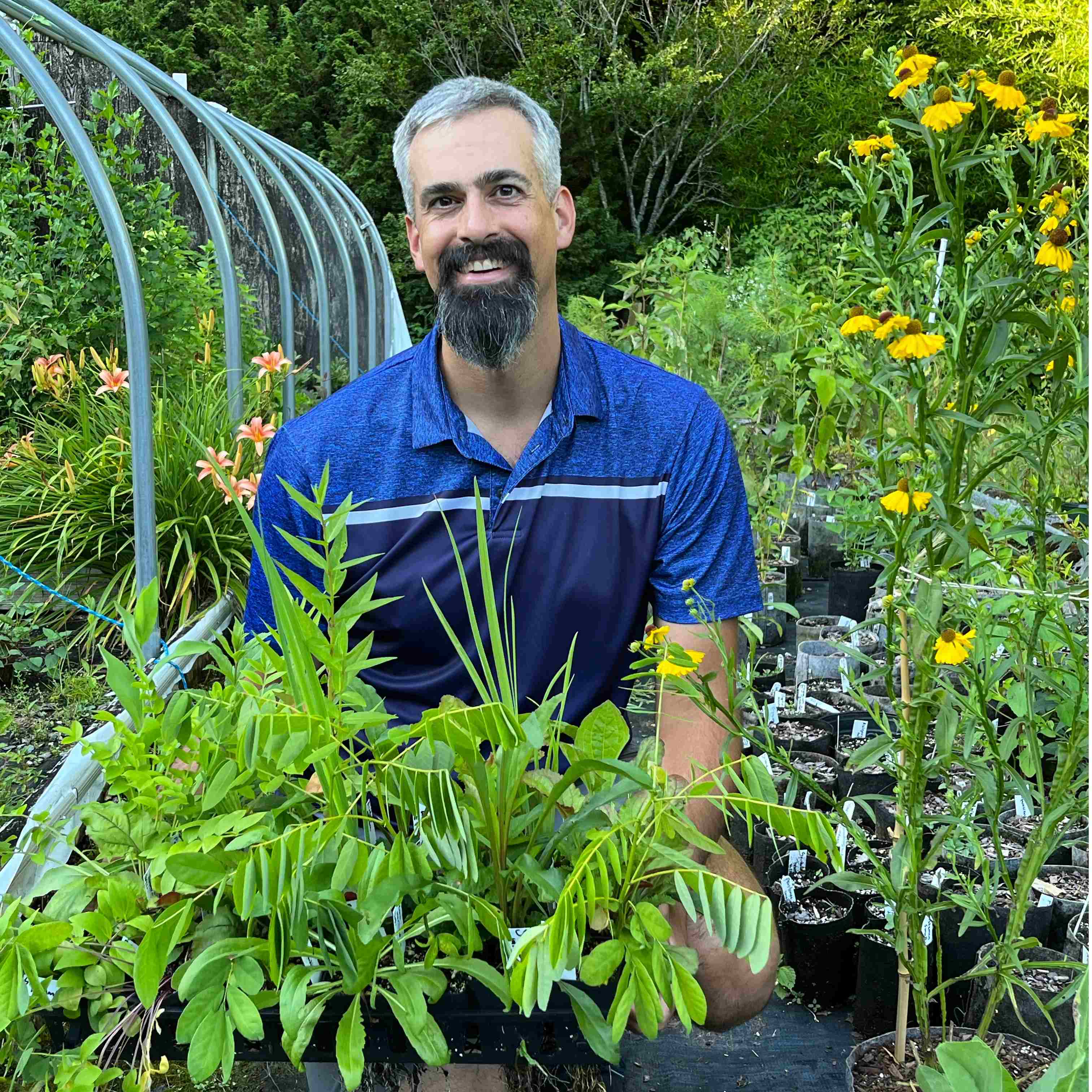Producer


Bug Lovers Native Plants
Address: PO Box 5 Glendale Springs, NC, 28629
About Us
Bug Lovers Native Plants is a small native plant nursery based in Ashe County, NC. Our goal is to provide sustainably produced perennial wildflowers and shrubs native to the High Country region of the Appalachian Mountains. These plants are specifically selected for their benefit to "bugs" and other local wildlife, by providing them with a food source for bees, butterflies, birds, and beneficial insects.
Brian is a graduate student in horticulture at NC State who found a connection between his love of wildlife and love of gardening. His research interests are in the connections between the plants we grow and the insects and other life in the natural world around us. The plant species available from Bug Lovers Native Plants each provide unique ways to connect our home gardens with our mountain ecosystem, including:
- Flowers to provide nectar for butterflies, bees, hummingbirds, and countless other insects with declining populations, like the Monarch butterfly
- Seeds and berries for migrating birds
- Plants as a food source for caterpillars, a required staple for the young of many nesting birds
- Flowers to provide pollen for rare solitary bees, some species of which feed on only one or two kinds of flowers
- Flowers to attract beneficial insect predators and parasitic wasps, which can help control pest insect populations in vegetable gardens and food crops
- Nesting material for birds
- Habitat for wildlife to survive cold and rainy weather
Brian is happy to answer questions regarding planting for a variety of gardens, please email him at bugloversnativeplants@gmail.com or check out our website!
Brian is a graduate student in horticulture at NC State who found a connection between his love of wildlife and love of gardening. His research interests are in the connections between the plants we grow and the insects and other life in the natural world around us. The plant species available from Bug Lovers Native Plants each provide unique ways to connect our home gardens with our mountain ecosystem, including:
- Flowers to provide nectar for butterflies, bees, hummingbirds, and countless other insects with declining populations, like the Monarch butterfly
- Seeds and berries for migrating birds
- Plants as a food source for caterpillars, a required staple for the young of many nesting birds
- Flowers to provide pollen for rare solitary bees, some species of which feed on only one or two kinds of flowers
- Flowers to attract beneficial insect predators and parasitic wasps, which can help control pest insect populations in vegetable gardens and food crops
- Nesting material for birds
- Habitat for wildlife to survive cold and rainy weather
Brian is happy to answer questions regarding planting for a variety of gardens, please email him at bugloversnativeplants@gmail.com or check out our website!
Practices
Bug Lovers Native Plants believes in nursery production with a focus in sustainability by mitigating waste, utilizing renewable resources, and reducing our carbon footprint. We maintain the following practices in the production of our native plants:
- We do not use pesticides of any kind. Our mission is to provide food and habitat for insects, and they definitely love our plants! Whether its a sphinx moth caterpillar making a home in our Giant Purple Hyssop, or a migratory Nashville warbler feeding on budworms in our Great Blue Lobelia, we are constantly rewarded with the interactions we see between our plants and our wild neighbors. We encourage our customers to buy healthy and "holey" plants, whether from us or other farms and nurseries.
- Our plants are grown from seed, or propagated from plants we grew from seed ourselves. Seed propagation takes longer than growing plants up from liners, but we believe this ensures a healthier rootstock for better viability when transplanted to the home garden. By growing our plants from seed, we also can offer more specimens with more genetic variability than cloned cultivars alone. We believe seed production is also more sustainable, since our plants are grown right here in the High Country, rather than being shipped fully-grown from out of state.
- Our native plant seeds, including those species listed on the NC Protected Plants List, are sourced from nurseries and botanical gardens to avoid impacting wild populations. We DO NOT harvest live plants from the wild. We encourage customers to purchase protected plants only if they are grown from sustainably and ethically obtained nursery stock.
- We avoid single-use plastic nursery containers whenever possible. We use 100% post-consumer recycled plastic fabric containers, 100% biodegradable coconut fiber containers, or sanitized reusable plastic containers. Our customers are encouraged to return our containers with the Bug Lovers Native Plants label to the High Country Food Hub for us to reuse, rather than the landfill.
- We minimize our use of non-renewable container substrates such as peat moss and perlite. While we are still researching 100% renewable substrate alternatives, our container plants are grown in a substrate made up predominantly of NC-sourced pine bark mulch, organic commercial compost, earthworm castings, and an arbuscular mycorrhizal inoculant typical of native soils to help our seedlings develop healthy root systems while minimizing water and fertilizer requirements.
- We minimize the use of fertilizers and use low-nutrient content organic fertilizers whenever possible. Native plants broadly prefer lower fertilization rates than standard ornamental perennials and we believe our practices reduce the amount of nitrogen and phosphorus run-off into our water supply. Our operation is small, but as we grow, our goal is to catch and retain all nutrient run-off on site.
- We compost healthy organic material and debris on-site for our own garden. We use commercial organic compost for our container plants.
- We do not use pesticides of any kind. Our mission is to provide food and habitat for insects, and they definitely love our plants! Whether its a sphinx moth caterpillar making a home in our Giant Purple Hyssop, or a migratory Nashville warbler feeding on budworms in our Great Blue Lobelia, we are constantly rewarded with the interactions we see between our plants and our wild neighbors. We encourage our customers to buy healthy and "holey" plants, whether from us or other farms and nurseries.
- Our plants are grown from seed, or propagated from plants we grew from seed ourselves. Seed propagation takes longer than growing plants up from liners, but we believe this ensures a healthier rootstock for better viability when transplanted to the home garden. By growing our plants from seed, we also can offer more specimens with more genetic variability than cloned cultivars alone. We believe seed production is also more sustainable, since our plants are grown right here in the High Country, rather than being shipped fully-grown from out of state.
- Our native plant seeds, including those species listed on the NC Protected Plants List, are sourced from nurseries and botanical gardens to avoid impacting wild populations. We DO NOT harvest live plants from the wild. We encourage customers to purchase protected plants only if they are grown from sustainably and ethically obtained nursery stock.
- We avoid single-use plastic nursery containers whenever possible. We use 100% post-consumer recycled plastic fabric containers, 100% biodegradable coconut fiber containers, or sanitized reusable plastic containers. Our customers are encouraged to return our containers with the Bug Lovers Native Plants label to the High Country Food Hub for us to reuse, rather than the landfill.
- We minimize our use of non-renewable container substrates such as peat moss and perlite. While we are still researching 100% renewable substrate alternatives, our container plants are grown in a substrate made up predominantly of NC-sourced pine bark mulch, organic commercial compost, earthworm castings, and an arbuscular mycorrhizal inoculant typical of native soils to help our seedlings develop healthy root systems while minimizing water and fertilizer requirements.
- We minimize the use of fertilizers and use low-nutrient content organic fertilizers whenever possible. Native plants broadly prefer lower fertilization rates than standard ornamental perennials and we believe our practices reduce the amount of nitrogen and phosphorus run-off into our water supply. Our operation is small, but as we grow, our goal is to catch and retain all nutrient run-off on site.
- We compost healthy organic material and debris on-site for our own garden. We use commercial organic compost for our container plants.
